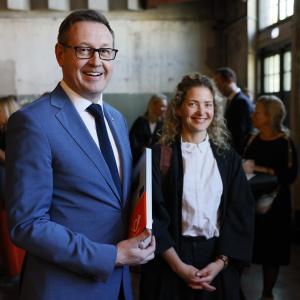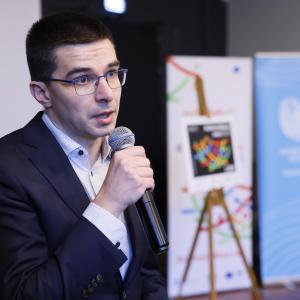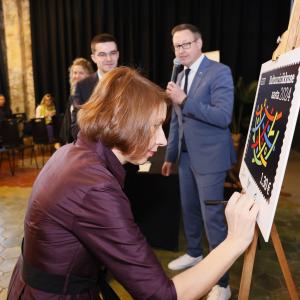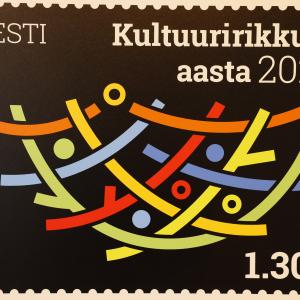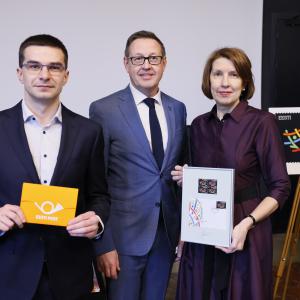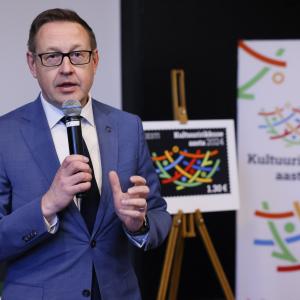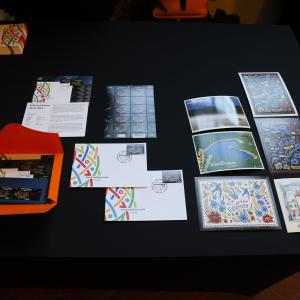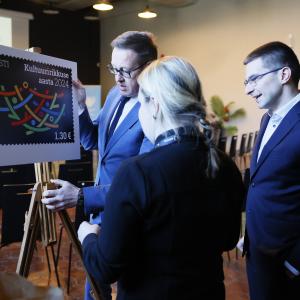The Diversity Day celebrated in Europe on 8 May began with the presentation of a cultural diversity stamp in Estonia. Omniva and the Integration Foundation presented the stamp celebrating the diversity of the cultures of the communities and peoples of Estonia before the conference dedicated to the special day.
"Sending letters is a part of Estonian culture that unites people again and again. The postage stamp needed for this adds to what we can rejoice in together – our heroes, achievements and symbols. As of today, everyone can share their joys and worries with a postage stamp that conveys our common value – cultural diversity," said Mart Meri, Chairman of the Supervisory Board of Omniva.
The cultural diversity stamp is one of the twenty-some stamps which Omniva will be issuing this year to celebrate important topics and worthy events in our country and society. The new stamp was designed by Triin Heimann on the basis of the visual identity of this Year of Cultural Diversity.
"This is another way for highlighting the cultural diversity of Estonia. Every letter sent within Estonia or even abroad with the new stamp will draw attention to cultural diversity. This will hopefully give rise to an interest to discover and acknowledge how many different communities and people call Estonia their home," said Dmitri Moskovtsev, Director of the Integration Foundation.
In total, 18,000 copies of the cultural diversity stamp will be printed. The unique stamp can be bought from post offices all across Estonia and from the online store for 1.30 euros. The first day stamp is used at the Toompea post office in Tallinn.
Additional information:
- The Year of Cultural Diversity is a thematic year organised on the initiative of the Ministry of Culture and under the leadership of the Integration Foundation to celebrate the diversity of the cultures of the communities and peoples in Estonia: www.kultuuririkkus.ee
- Diversity Month is celebrated in Europe in May on the initiative of the European Commission. In Estonia, we are celebrating the Diversity Day and holding a special conference on the second Wednesday of May under the leadership of the Estonian Human Rights Centre. On this occasion, the conference is dedicated to the values and opportunities found in cultural diversity. ‘From Cultural Conflict to Innovation’ conference
In the photos: (Integration Foundation / Egert Kamenik) – https://egertkamenik.smugmug.com/Omniva-Kultuuririkkus/n-vhgWjP

